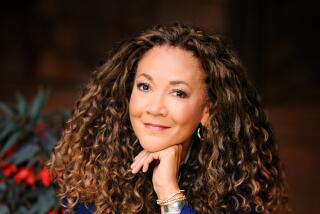Clinton Seeks Dialogue on Race, but He Must Go Beyond Same Old Talk
- Share via
The news flash from last week’s first meeting of President Clinton’s advisory board on race is that America is a racist country. Deeply, broadly racist. Perhaps irredeemably racist.
Board member Angela Oh, a Los Angeles lawyer, set the tone early on when she said the panel should not waste its time documenting the extent of discrimination because it was so widespread. “I don’t need the data,” she said. “I don’t think any of us need the data; we know it’s there.”
John Hope Franklin, the prominent African American historian who chairs the board, then raised the ante. Racism, he said, pervaded American life: “Our whole country, our whole practices are suffused with it,” he said. “Hardly an aspect of American life has escaped the baneful touch of this awful thing called racism. . . . Wherever you go, you are going to see this.”
The closest to a dissenting note came from Judith Winston, the general counsel at the Education Department who was just appointed the panel’s executive director. “Most Americans are not and do not consider themselves racist,” she said, before quickly adding that we have nonetheless “internalized . . . racist concepts and stereotypes.”
Racism is America’s original sin, the great blot on our egalitarian ideals. But it’s also possible to read American history as an imperfect, contradictory, but persistent effort to overcome it.
However slowly, the trend line has been to enlarge the circle of freedom. Eventually, America did end slavery, overturn state-sponsored segregation and provide equal access to the ballot. Thirty years ago, two-parent black families earned only two-thirds as much as similar white families; today they earn 87% as much. In 1958, only 4% of whites said they approved of interracial marriage; today the figure is 61%, according to the Gallup Poll.
“It is impossible to live in America in 1997 and not recognize . . . an enormous amount of progress has taken place,” said Linda Chavez, president of the neoconservative Center for Equal Opportunity.
You can argue this round or flat, but mostly you will argue this to impasse. Surely America is not a colorblind society; just as surely as it has made gains on many fronts. The real point is that this is the wrong argument. Clinton set out to open a new dialogue on race. But there’s no quicker way to inflame old antagonisms than to base the dialogue on the assertion that American society is drenched in racism “wherever you go.”
“That’s not a dialogue,” said one Democrat, “that’s a monologue.”
The president once understood this. When Clinton came out of a meeting with black community leaders in the home of Rep. Maxine Waters (D-Los Angeles) just days after the Los Angeles riots in 1992, he didn’t talk about a society “suffused” with racism; he talked about the importance of increasing access to credit so that more people in South-Central could own their own homes and businesses. Throughout the day, his focus was on grass-roots “empowerment” through programs that linked opportunity and responsibility.
What Clinton recognized then was that the best way to attack race-related problems was to focus less on the polarizing divisions of race than on the underlying problems themselves. Candidate Clinton emphasized race-neutral programs--such as education or health care reform--that nonetheless offered tangible benefits to minorities. The aim was to move beyond a ritualized debate over racism and reparation toward practical measures that could help the needy of all races--and draw broader public support than an approach that targeted benefits solely by race.
In office, Clinton has only imperfectly implemented this idea. The left complains that he failed to guarantee universal health care or ensure public-service jobs for welfare recipients facing time limits. Conservatives carp at his increasingly reflexive defense of affirmative action. But he can also claim progress in fulfilling his original vision.
Clinton has increased access to capital for minorities through invigorated enforcement of fair-lending and community-reinvestment laws and subsidies for community development banks. He’s boosted cities with billions of dollars to hire more police and launch empowerment zones. He’s signed increases in the minimum wage and tax relief for the working poor, and this year’s budget will provide increased health care coverage for uninsured children and tax breaks for hiring former welfare recipients.
This agenda may not be equal to the challenge, but it’s the right battlefield. In the landmark Bakke affirmative action case 19 years ago, the late Supreme Court Justice Harry Blackmun memorably declared, “In order to get beyond racism, we must first take account of race.” Today’s imperative reverses his logic: To deal with the problems of race, we must go beyond race. At a time when society is skeptical of new government initiatives, and federal power is divided between the parties, the only plausible agenda for racial progress is one that aims to help all those already trying to help themselves--white and minority alike.
In contrast, Clinton’s advisory panel appears intent on viewing all issues through the prism of race. But in an America growing ever more diverse, that’s a blueprint for social division and political irrelevance. With that compass, it’s not hard to imagine the panel producing conventionally liberal recommendations on issues such as crime and social spending that Clinton quietly disowns.
The best service Clinton can offer on race is to articulate an agenda that encourages Americans to emphasize their common interests and values--not their racial differences and historic grudges. His decision to focus his speech to the NAACP last week on the importance of demanding high standards from all students marks an important step in that direction.
But to truly inspire a new dialogue on race, Clinton will need to push further. Jim Sleeper, author of the provocatively titled upcoming book, “Liberal Racism,” frames the larger challenge well: “Our best leaders,” he writes, “are those who show their neighbors, every day, how to leave subgroup loyalties at the doors of classrooms, jury rooms, hiring halls and loan offices.”
That’s far better advice than anything Clinton’s advisory panel has offered so far.
More to Read
Get the L.A. Times Politics newsletter
Deeply reported insights into legislation, politics and policy from Sacramento, Washington and beyond. In your inbox three times per week.
You may occasionally receive promotional content from the Los Angeles Times.










